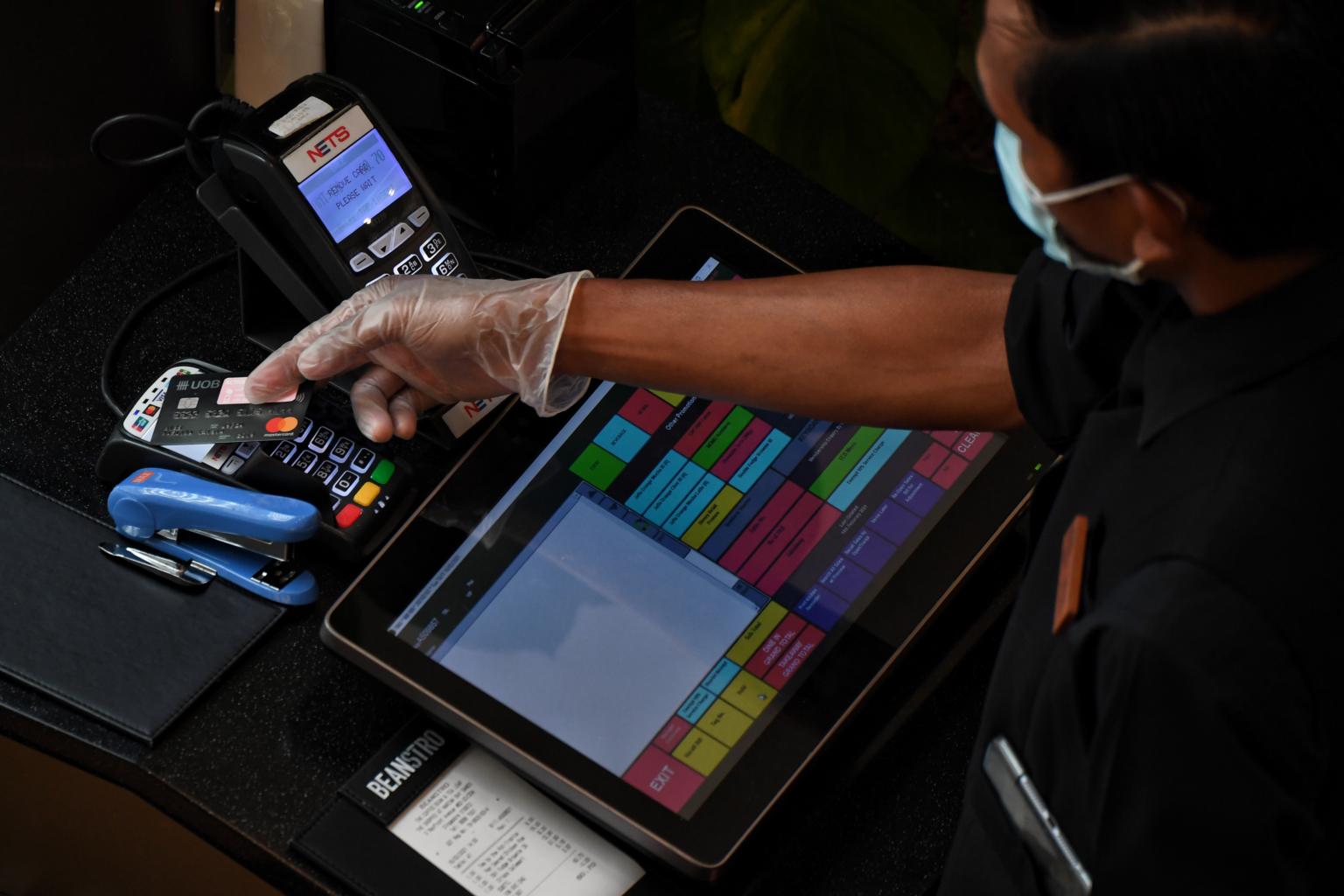Budget debate: E-payments on the rise but Singapore does not aim to be a cashless society, says Ong Ye Kung
Sign up now: Get ST's newsletters delivered to your inbox

On a suggestion to have PIN-only bank cards that protect users from fraud, Mr Ong said local banks already offer the ability to disable the contactless feature of ATM and debit cards.
ST PHOTO: KUA CHEE SIONG
SINGAPORE - The Covid-19 pandemic has accelerated the adoption of e-payments but Singapore does not aim to be a cashless society, said Monetary Authority of Singapore (MAS) board member Ong Ye Kung.
"We are promoting e-payments because it is efficient, convenient and green. But we are not aiming to be a cashless society. Cash will continue to be a familiar and convenient way to transact," he said during the debate on ministries' budgets on Friday (Feb 26).
Giving an update on the adoption of fund transfer service PayNow, he said registrations for PayNow rose by 1.6 million last year, bringing the total number of registrations to 4.9 million.
Meanwhile, PayNow Corporate registrations for businesses doubled to about 240,000.
This means that 80 per cent of residents and businesses are currently on PayNow, said Mr Ong, who is also Transport Minister.
The volume of money transacted through the service doubled from a year ago to $5 billion in December, with growth expected to continue as users can now also send and receive via PayNow on non-bank e-wallets such as GrabPay and Singtel Dash.
The adoption of QR payments by merchants also surged. There are 200,000 SGQR labels islandwide, with 120,000 deployed last year alone.
Fewer people are now using cheques, with the ratio of cheque to e-payment volume falling from 32 per cent in 2016 to 18 per cent in 2019, and tumbling further to 12 per cent last year.
The absolute number of cheques used fell by a record 10 million last year.
Likewise, the ratio of ATM cash withdrawals to e-payments also fell from 47 per cent in 2016 to 24 per cent in 2019, and slipped even more to 17 per cent last year.
"This ratio should decline further as more people get used to accepting e-payments. There are Singaporeans who are less familiar or face difficulties with e-payment and we will not leave them behind," said Mr Ong, who cited initiatives such as Seniors Go Digital that help the elderly to acquire skills to transact digitally.
Nonetheless, it is important that cash continues to be widely accepted here and there will continue to be ATM and cash withdrawal points, he added.
There are 4,100 of such touch points, up from 3,700 five years ago.
Responding to a suggestion by MP Dennis Tan (Hougang) to have PIN-only bank cards that protect users from fraud, Mr Ong said local banks already offer customers the ability to disable the contactless feature of ATM and debit cards.
"On the option of ATM cards without the contactless feature at all, we are not aware of any bank's initiative to do away with PINs (personal identification numbers). We will remind banks to explain this option to customers who may need it," he said.
Mr Ong also shared how the financial services sector has evolved to promote larger social good.
In terms of sustainability reporting, he said MAS wants to see continued improvements in how companies disclose their broader social and environmental impact, on top of their financial performance.
"Such disclosures are important, especially given the heightened social and environmental consciousness among investors. It will facilitate capital flows towards investments more aligned to investors' preferences, objectives and standards."
Since 2016, the Singapore Exchange Regulation has required listed companies to disclose material environmental, social and governance (ESG) risks and opportunities that could influence the decisions of investors. These include information such as greenhouse gas emissions, skills and gender diversity of senior management and board members.
To enhance trust in the banking system, MAS is also working with other government agencies on fraud prevention and anti-money laundering.
The Association of Banks in Singapore, with the support of various government agencies, has issued a code of best practices to enhance commodity financing standards here. It covers areas such as trading companies' corporate governance, risk management and disclosure practices. Banks will use it to set standards for lending, and this will be fully implemented by July.
Singapore's central bank is also working with ABS to establish a secure central database for banks to access records of trade finance transactions in Singapore, in a move to enhance transparency and mitigate the risk of duplicate financing.


